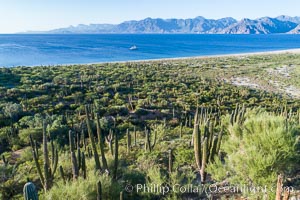
Cardon on Isla San Jose, looking across to Baja California, aerial photo, Sea of Cortez.
Species: Cardon cactus, Elephant cactus, Pachycereus pringlei
Location: Baja California, Mexico
Image ID: 37331
Species: Cardon cactus, Elephant cactus, Pachycereus pringlei
Location: Baja California, Mexico
Image ID: 37331
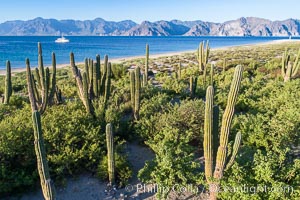
Cardon on Isla San Jose, looking across to Baja California, aerial photo, Sea of Cortez.
Species: Cardon cactus, Elephant cactus, Pachycereus pringlei
Location: Baja California, Mexico
Image ID: 37340
Species: Cardon cactus, Elephant cactus, Pachycereus pringlei
Location: Baja California, Mexico
Image ID: 37340
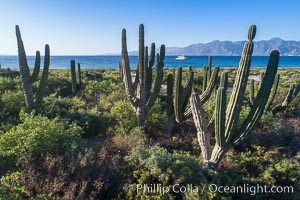
Cardon on Isla San Jose, looking across to Baja California, aerial photo, Sea of Cortez.
Species: Cardon cactus, Elephant cactus, Pachycereus pringlei
Location: Baja California, Mexico
Image ID: 37341
Species: Cardon cactus, Elephant cactus, Pachycereus pringlei
Location: Baja California, Mexico
Image ID: 37341
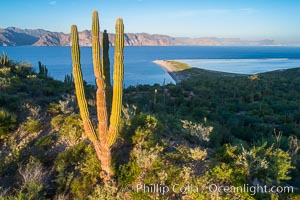
Cardon on Isla San Jose, looking across to Baja California, aerial photo, Sea of Cortez.
Species: Cardon cactus, Elephant cactus, Pachycereus pringlei
Location: Baja California, Mexico
Image ID: 37345
Species: Cardon cactus, Elephant cactus, Pachycereus pringlei
Location: Baja California, Mexico
Image ID: 37345
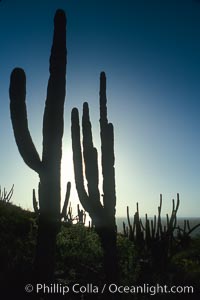
Cardon cactus, near La Paz, Baja California, Mexico. Known as the elephant cactus or Mexican giant cactus, cardon is largest cactus in the world and is endemic to the deserts of the Baja California peninsula. Some specimens of cardon have been measured over 21m (70) high. These slow-growing plants live up to 300 years and can weigh 25 tons. Cardon is often mistaken for the superficially similar saguaro of Arizona and Sonora, but the saguaro does not occupy Baja California.
Species: Cardon cactus, Elephant cactus, Pachycereus pringlei
Location: La Paz, Baja California, Mexico
Image ID: 05497
Species: Cardon cactus, Elephant cactus, Pachycereus pringlei
Location: La Paz, Baja California, Mexico
Image ID: 05497
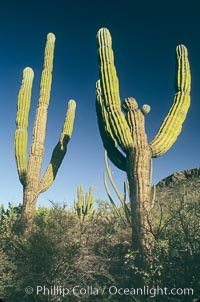
Cardon cactus, near La Paz, Baja California, Mexico. Known as the elephant cactus or Mexican giant cactus, cardon is largest cactus in the world and is endemic to the deserts of the Baja California peninsula. Some specimens of cardon have been measured over 21m (70) high. These slow-growing plants live up to 300 years and can weigh 25 tons. Cardon is often mistaken for the superficially similar saguaro of Arizona and Sonora, but the saguaro does not occupy Baja California.
Species: Cardon cactus, Elephant cactus, Pachycereus pringlei
Location: La Paz, Baja California, Mexico
Image ID: 05499
Species: Cardon cactus, Elephant cactus, Pachycereus pringlei
Location: La Paz, Baja California, Mexico
Image ID: 05499